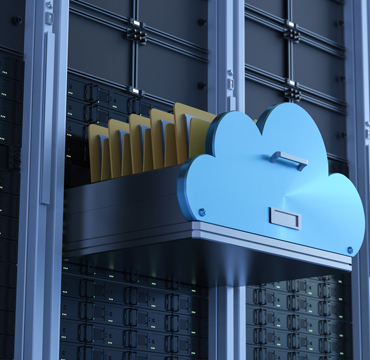How Migrating to the Cloud Can Help Enterprises Become More Sustainable
In an era where sustainability is not just a buzzword but a business imperative, enterprises are increasingly seeking ways to reduce their carbon footprint and embrace eco-friendly practices. One significant step in this direction is cloud migration. The shift to cloud computing offers a transformative opportunity for businesses to enhance their operational efficiency while simultaneously advancing their sustainability goals.
The Sustainability Edge of Cloud Migration
At its core, cloud migration is about hosting data and applications on remote servers, accessed via the internet. This model presents several sustainability advantages:
- Energy Efficiency: Traditional data centers are energy-intensive, requiring constant power for servers and cooling systems. Cloud providers, however, utilise advanced technologies to optimise energy use, leading to significantly lower carbon emissions.
- Resource Optimisation: Cloud migration promotes the efficient use of hardware resources. Through virtualisation, a single physical server can host multiple virtual servers, maximizing resource utilisation hence reducing the need for excessive hardware. This not only cuts down on electronic waste but also reduces the energy consumption associated with running and cooling physical servers.
- Reduced Physical Infrastructure: Migrating to the cloud reduces the need for on-premises infrastructure. This shift not only lowers energy consumption but also minimises the physical space required for data storage, thereby reducing the enterprise’s environmental footprint.
- Scalability and Flexibility: The cloud allows businesses to scale their resources up or down as needed, ensuring that they use only the energy and resources necessary for their current operations. This dynamic scalability helps in avoiding over-provisioning and under-utilization, contributing to a more sustainable use of computing resources.
Rogers Capital Technology: Your Partner in Sustainable Cloud Migration
We at Rogers Capital Technology stand at the forefront of assisting businesses in their transition to the cloud, aligning with sustainability goals. Here’s how we help your business to facilitate this transition:
- Expertise in Green Cloud Solutions: With our expertise, we ensure that businesses adopt cloud strategies that are not only efficient but also environmentally friendly.
- Customised Cloud Migration Strategies: Recognising that each business has unique needs, we offer tailored cloud migration plans. These plans are designed to optimise resource usage, reduce wastage, and minimise the carbon footprint of your business’s operations.
- Advanced Data Center Technologies: Our data centers are built on the latest energy-efficient technologies. These include advanced cooling systems and renewable energy sources, significantly cutting down the carbon emissions associated with data storage and processing.
- Continuous Optimisation and Support: Post-migration, we provide ongoing support and optimisation services. This includes regular assessments to ensure that cloud resources are being used efficiently, helping businesses maintain a sustainable cloud environment.
The Bigger Picture: Cloud Computing and Corporate Sustainability
The benefits of cloud migration extend beyond immediate operational efficiencies. By adopting cloud computing, enterprises align themselves with broader global sustainability initiatives. This alignment not only enhances their corporate social responsibility profile but also resonates with increasingly environmentally conscious customers, employees, and stakeholders.
Moreover, sustainable cloud computing can be a catalyst for innovation. As businesses become more adept at using cloud resources efficiently, they often discover new, more sustainable ways of operating, driving both environmental and economic benefits.
Conclusion
In summary, cloud migration is a critical step for enterprises aiming to become more sustainable. With the expertise and support of Rogers Capital Technology, businesses can navigate this transition smoothly, ensuring that their move to the cloud is not just a technological upgrade, but a stride towards a more sustainable and responsible future.


